
Pasco Senior High School![]()
1964

- 60th reunion sumamry
- Photo Gallery
- Spotlight Biographies
- 55th Reunion Video
- 70th Birthday Party
- 50th Reunion Photos & Videos
- Credit Card Donation
- Message Forum
- Member Photos
- PHS Orchestra and Choirs
- Our Poetry from 1962
- Pasco History
- Our Teachers and Staff
- Jack Bafus
- Adrienne Birdsell
- Ed Banks
- Bill Bode
- Teruko Ogata Daniel
- Bernice Davidson
- Henry Bidstrup
- Jean Dalthorp
- James Ezell
- Scott Foxley
- Ray Frey
- Robert L. Gregson
- Walt Grisham
- Ray Hart
- Mary Alice Hawkins
- Dorothea Jones
- Clair Kerby
- Doris Lisk
- Virginia Mantel
- Richard Maurstad
- Wilbert Mills
- Emerson Morgan
- Jane Pauline
- Ken Seibert
- Jake Stappler
- Bill Till
- Russ Wiseman
- Our Lessons Learned
- 1964 History/Videos
- Missing Classmates
User Forums
| Forum: What I'm Thinking | |||||
|
|||||
|
Allen Johnson
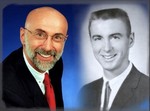 Joined: 04/17/10 Posts: 7 View Profile |
The Lies I Have Told, Allen Johnson Posted Monday, September 2, 2013 02:26 PM The Lies I Have ToldAllen Johnson
I am 67 years old. When I look in the mirror, I see a man whose eyes have lost their youthful sheen. I see the lines and age spots that have slowly grown deeper and darker. I would like to say that these traces and blemishes give me character. More objective critics are likely to call it…well, antiquity.
When I turned 66, I received a card that read, “On this, your special day, I am reminded of the giant California Redwoods: Their strength, their loftiness, their majesty. Thank you for planting them.”
If that were not enough, I have a friend who was country born and bred and speaks with a lyrical twang. When he and I are reunited after a month of following our own devices, he takes one look at me and drawls, “I don’t know, Allen, you look to me like you’ve been rode hard and put away wet.”
That’s all right; I can live with that. I cannot alter Father Time, nor am I sure that I would want to. But beneath the surface, there is another change that has evolved slowly, almost imperceptibly over time. It is this: my flaming quixotic notions have gradually dimmed and extinguished. I am no longer the gamboling, idealistic boy of summer. Today, in the winter of my life, I have become a realist. I am not saddened to make this admission. I am not feeling particularly nostalgic for my roseate ideas of childhood. Nor am I depressed. Really, for me, it has been a natural transfiguration from idealism to realism.
How did that happen? How did I become a realist in my old age? Part of it is surely experience. Infatuation loses its allure, when love walks out on you. The inability to dredge up your wife’s name will quickly disabuse your self-regard as a mentally agile sexagenarian. And on the world stage, where “genocide” echoes around the globe, a belief in universal peace is relegated to schoolchildren and beauty pageant contestants. All this will heighten our esteem for realism. But experience of this sort was not the primary driver for me.
How then? It is this: My lies have converted me to realism. There is a strange positive correlation between deception and common sense. As I look back on my life, I have come to realize that the more deceptive I was, the more realistic I became—and less likely to be duped. In this essay I will try to explain that connection.
There are three categories of lies to which I am guilty: lies of omission, lies of commission, and lies of self-delusion. All three have lifted me up and sat me down within the ranks of realists.
Lies of omission To understand my lies of omission, we must go back in time. In 1922, at the age of 23, my grandmother, Hilja Tuominen, immigrated from Finland to New York City. She was destitute and resorted to prostitution and bootlegging to survive. Two years later, in 1924, my father, Thurston, was born. His father was unknown; he could have been any one of a number of Johns. By the time my father was four years old, he was roaming the streets of Harlem like a stray cat, looking for edible garbage or, on a good day, a charitable handout. When my dad was six, his mother was admitted into Bellevue Hospital for alcoholism. Meanwhile, Thurston was a ward of the court and eventually placed in the Kallman Home for Orphaned Children in Brooklyn. My dad never saw his mother again.
Flash forward. I am nine years old. My father, mother, brother, and I are living in a 27-foot trailer on Fourth Street in North Pasco. I am learning what it is like to live with my father. I soon discover that he would never play ball with me, never read to me, never ask me how I was doing, never hug me or tell me he loved me. He was simply not emotionally present.
A decade later, and for the rest of my life, I lived my lie of omission with my father. I did not tell him who I was. He thought he knew me, but he did not. He thought I trusted him; I did not. He thought that I was a believer; I was not. He thought that I loved him; I did not.
I never told him the truth, because he could not handle the truth. How could he? How could an abandoned child, who had never felt the tender caress of a devoted mother, know how to love his own child? How could he acquire a capacity for empathy?
So I lied. Until the day he died, I let him believe that we were whole, that we were family. That lie moved me from idealism—the universal, immutable love of a father—to raw realism. My father was incapable of loving, and that was real.
Lies of commission I was blessed with a devoted and compassionate mother. If there is any virtue in me, it is through her loving grace. When I was nine, my mother was converted to Christianity. She attended the Pasco Nazarene Church, and my brother Ray and I tagged along.
With time, I was incorporated into the traditions of the church. I would help collect the offering or play a trumpet solo or lead the congregational singing. I was saved, sanctified, and sanitized.
When I was 12 years old, I was baptized in the warm August waters of the Yakima River. I still remember the sensation of being tipped backwards and submerged—in the name of the Father, the Son, and the Holy Ghost. (When I was under, I blew air out my nose to avoid choking. I would not resort to pinching my nostrils with my thumb and forefinger, a loutish act that seemed heretical to my 12-year-old mind.)
When I was 19, I was asked to accept the position of summer youth pastor at West Side Presbyterian Church in West Seattle. When I was asked by the senior pastor if I had a dark side to my character, I lied. I said I did not. Truth be told, I was swirling in a maelstrom of unresolved questions about scriptures, religion, and the Trinity.
Despite my doubts, I enjoyed working with the young people at West Side Presbyterian. I organized events for middle school and high school students, directed the youth choir, and served as a camp counselor. The kids were often tenderhearted and funny. And I wasn’t much older than they, so we got along famously.
So famously that the following winter I was invited to be the special speaker at a state-wide Presbyterian youth summit. That was a hard decision. As a closeted skeptic, I was not sure what I could say. But I was a sophomore in college, and a $100 honorarium looked pretty darn good. So I accepted the job.
One day into the three-day event, a boy in his early teens cornered me after one of my equivocal, lackluster presentations. His name was Andy. I don’t remember how our conversation began, but I know how it ended.
“You’re a phony,” Andy said without flinching.
I tried to blink away my disbelief. “Ah…wha’ d’ya mean?” I stammered.
“You know what I mean.”
“But you’re wrong. I’m not a phony,” I lied.
“Yeah, you are.”
I could not admit it to Andy; at that point in my life, I’m not sure I could even admit it to myself. I was a phony—as phony as a wax mustache. I was pretending to be a Christian, when I had no assurance—not even a hint—that I was saved by the blood of Jesus.
I was simply riddled with too many theological questions:
My lie of commission to Andy led me to a new philosophy. I decided, then and there, that I would “walk in the light as I saw the light.” I would place my trust in that which was logical, self-evident, and inarguable. There were some things that I knew for sure, things that were realistic and empirical:
Doctrine may bring people of like mind together, but for those outside the fold—the nonbelievers—their good name and, all too often, their safety may be at risk.
I should quickly say that there are throngs of loving, committed Christians. These believers strive, as Jesus instructed, to love God with all their might and their neighbors as themselves. I hold these Christians in high regard, for their “doctrine,” or, perhaps more accurately, their “belief system” has given them a beautiful covenant by which they navigate their lives on earth. I honor and respect them.
Still, that tribute extended, I have chosen a different path. I am very circumspect, when it comes to doctrine. I seriously doubt that Jesus was born of a virgin, walked on water, preached in South America (a Mormon doctrine), or arose from the dead. But I will fight to the death for your right to believe it. It is just not for me.
Finally, to exhort, “Allen, you must simply take the Gospel on faith” is not nearly enough. To me faith is what we turn to when logic runs out. I choose to live my life as a scientist, not as an advocate of the religious, the mystical, or the celestial. In a word, as far as my spiritual life is concerned, I am a realist.
Lies of self-delusion It seems that we all need to believe that we are special.
We have certainly inculcated our youth with that mantra. We have repeated it ad nauseam, until our children—and their parents, teachers, and preachers—have come to believe it as if it were a direct dictum from God almighty.
I do not believe it. I do not believe that any child is any more or any less “special” than any other child. Children simply are. They are a curious breed. Sometimes funny, often self-serving, and always unpredictable. They just ain’t special. The sooner we come to that understanding, the sooner we will raise a more healthy generation.
We need to stop saying, “You are my special princess,” and start saying, “Try this out. Maybe it will work for you. Maybe you’ll have fun. And maybe one day—if you have enough passion and a truckload of self-discipline—you will make a contribution.”
When I grew up—in the more pragmatic, less coddled 1950’s—I was not often told that I was special. I suspect that most adults of my vintage could say the same. So little by little, I began to hear a tiny voice in my head that asked a horrifying, tenebrous question: “Are you loved?” And then again, late in the night, when the tree branches brushed against my bedroom screen window, “Are you loved? Are you loved?” I was tormented by the question.
The voice was so insistent that I had to find the answer. I looked to my father. Would he confirm that I was loved? My answer was swift: “No, not by him.” Not if love were defined as extending oneself for the intellectual and spiritual growth of another human being.
By my mother then. Yes, I was certainly loved by her, but her love was unconditional. I could have been a lizard, and it would not have diminished her love for me. I knew that, and, believe me, I was grateful. (I can still remember my childhood: Waking up from a nap and finding my mother in the big lounge chair in the living room and curling up in her arms, until I was fully awake and ready to assault the world again.) But somehow that kind of motherly love was not sufficient. I wanted to know if I were loved, not because I existed—as my mother loved me—but because of who I was as a sentient human being. Was I loved for being me—not necessarily special—but uniquely me?
Perhaps the church had the answer. (Remember, I was a believer as an adolescent.) But the more I puzzled over it, the more I realized that the church fell short. The church loved me if I were a believer, and, although I was a believer at the time, I was looking for something more. I did not know what exactly…but something.
If my father, mother, or church could answer that question, who then? Who could persuade me that I was loved? And in a flash of insight—an epiphany that comes, I believe, to every adolescent—I realized the source had to be my peers.
So by the time I entered middle school (we called it “junior high school” back then), I began—through a series of small, incremental steps—to fabricate my self-delusion. Although I never confessed it to a soul, I began to tell myself that I was indeed unique—yeah, even special. I was smarter, funnier, more talented, more creative, more perceptive, more attentive to others. I was—by gum and by golly—a work of art.
By the time I had graduated from high school, I imagined that the magic was working. It was reckless self-delusion. Still, on my most daring days, and in the secret garden of my mind, I professed that I was surely loved.
I reveled in the inscriptions from my high school yearbook. Better yet, the most memorable dedications were from girls. (The boys only said inane things like “Best of luck” and “You’re a blast, Uncle Al” and not worth quoting here.) But, ah, the girls. Their words were rhapsodic:
But the most cherished comment was this from the invariably effervescent Bev Meyer: “I have so many things I could say, because you are so deserving of praise. Lots of love.”
YES! Bev nailed it! I was deserving of praise. AND I was loved for it. Thank you Bev!
But was I? Had I created in myself what we create in today’s children: an exaggerated, self-absorbed, narcissistic sense of self?
Had I lied myself into the good graces of my peers? I would need more than a few snippets from a high school yearbook—where compliments are obligatory—to convince myself that I was loved.
So I marinated in the delusion. I continued telling myself that I was bright, charming, and talented through college and through my career and into retirement. And, I have to say, I still harbor that self-talk. In fact, I’m always a little miffed when my avatar does not match the real world. It is still bewildering to me when one of my books takes too long to publish or I am not called to deliver the keynote address or, in brief, I am not singled out as the cat’s meow.
Those incomprehensible disappointments—that of an unheralded champion—has turned me into a realist. I have come to realize that despite my self-delusion, the world may not lionize me with a standing ovation or flowers at my feet. No, I’m more likely to be overlooked, snubbed, ignored, or, worse, held in contempt. This kind of Philistine behavior will transform an idealist into a realist faster than you can say, “Where the hell are all my fans?”
So what does this all mean? In some ways I regret the lies. I certainly wish I had enjoyed a relationship with my father. I wish I had been truthful to Andy, who called me out as a phony. I wish I had been able to accept myself as who I was, as opposed to whom I imagined I could become: someone who was loved.
But after saying that, I’m not at all sure that the last paragraph is accurate. It may be another big fat lie.
Even though I lied to my father by not disclosing myself, I have compensated by learning to be transparent myself. On the flipside, I know how to uncover the mysteries of others. I know how to talk to people, how to connect. I know how to ask questions, how to experience their life’s paradigm. And it seems to me that that ain’t bad.
Even though I lied to Andy about my religious integrity, that unmasking launched me into a lifelong exploration of my spiritual life. I have studied other cultures. I have experimented with ideas. I have tested the value of living a principle-centered life. And it seems to me that that ain’t bad.
Even though I have deluded myself that I am one of the most versatile and gifted people on earth—an outrageously hubristic and embarrassing confession—that delusion has had its rewards. It has propelled me into a life brimming with new and passionate discoveries: mountain climbing, scuba diving, flying, writing, entertaining, teaching, keynoting, painting, photographing, traveling, French fluency, and a penchant for entering gently into the sacred world of others. And it seems to me that that ain’t all that bad either.
So how do I feel about the lies I’ve told? Frankly, right or wrong, I feel surprisingly vindicated and unashamed. After all, how else could I feel? A fellow as bright, charming, and talented as I?
(Is my nose growing?) Allen Johnson |
||||
|
|||||
|
Janice Schauss Fraley
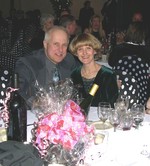 Posts: 2 View Profile |
RE: The Lies I Have Told, Allen Johnson Posted Tuesday, September 3, 2013 05:16 PM Deeply personal and courageous essay, Allen. I love honestly in the depth you have delved. But, of course, I have been around you enough to know superficiality in relationships is not you. I am hopeful this will encourage others to share of themselves, if not online, then next September in person. You essentially lay yourself bare, asking nothing in return from anyone. It would be wonderful if responses were provoked so there would be a resultant online discussion. 50 years may be our last opportunity to get to know each other; and some, sadly, we have already lost. Hugs to you, Allen! |
||||
|
|||||
|
George Lewandowski
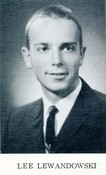 Posts: 1 View Profile |
Unconditional Love Posted Tuesday, September 10, 2013 09:21 PM Allen’s essay struck several resonant chords in me. Suffice it to say, his experience is far more universal than he seems to think. The rest of us did not really enjoy the kind of life that he probably imagines for us, and for which he longed through sixty-seven successive birthdays. Yes, the rest of us, especially people in my extended family, experienced more instances of “unconditional love,” but Allen is understandably disappointed by the limits of even this form of adoration.
We all seek vindication and affirmation from the larger world of “objective standards,” but Allen puts too much stock in such standards. Remember that Obama and Kissinger both won Nobel peace prizes. So much for objective standards.
What’s the difference between a mother’s unconditional love and a certificate of worthiness issued by a corrupt world? Neither proves much about the recipient, but the love lasts longer and its giver is free from guile. Bending official measuring sticks, for bizarre purposes, is a well established tradition within human history. Back in 1893 the US Supreme Court overruled all scientific evidence to the contrary, and scoffed at the discipline of scientific classification rules, to declare that, henceforth, tomatoes were a vegetable, instead of a fruit. They ignored the scientific standard so that the powerful tomato growers’ association could become wealthier by selling tariff-protected vegetables instead of free market fruits. I repeat, is this really so different from the Mother who looks at the precious little “lizard” sleeping in her lap ( to borrow Allen’s metaphor) and sees a sleeping prince?
I would love to spend an afternoon, among trusted friends, discussing Allen’s confessions and our reactions to them, but for the sake of brevity, and to avoid biting off more tough meat than I can chew today, I will respond to just one favorite passage in Allen’s essay:
Allen Wrote:
I have come to realize that despite my self-delusion, the world may not lionize me with flowers at my feet nor a standing ovation to my eyes and ears. No, I’m more likely to be overlooked, snubbed, ignored, or, worse, held in contempt. This kind of Philistine behavior will transform an idealist into a realist faster than you can say, “Where the hell are all my fans?”
To quote a cynical and contemptuous cliché that often gets flung in my own face, “get a dog,” Allen.
My dog, Lucky, would certainly overlook, snub, and ignore you. To him, you are nothing but a moving fire hydrant
At the same time, he idolizes me, depends upon me, and he offers me unconditional love.
I would have to be colossal fool not to realize that his unconditional love has more to do with the Purina Dog Treats in my pocket than with his thoughtful assessment of my character, my intellect, my personality, or my soul. His adoration does not spring from some deep understanding of who I am, nor from adherence to some well articulated universal standard (like the standards of the Nobel prize committee or the Supreme Court).
It springs from his gut feelings.
Now, in the autumn of my years, I have, nonetheless, gained more appreciation for that simple form of love. In fact I see great similarity between Lucky’s adoring gaze, and the look of human friends, and family, offering unconditional love. Such friends are an important part of that which makes my life worth living, even though it clearly does not prove anything about my merit in the eyes of those whom Allen seeks to adjudicate the great universal standard.
To borrow Allen’s language again, I am a “realist.”
I have made the “natural transfiguration from idealism to realism,” as Allen describes it, and the limitations of unconditional love do not depress me nearly so much as the realization that there is no earthly manifestation of the universal standard. There is no applause, no certificate, no position within the church, nor any international award that proves one’s worth beyond all possible doubt. Those who embrace critical thinking are forced to accept the obvious. No matter what accolade one might receive from the Supreme Court of human opinion, one might still be more fruit than vegetable.
In Lucky’s eyes I am wonderful. He makes no pretense about applying an official, universal standard. This unconditional love is all that he can offer, but I am still grateful for what I get. The unconditional love I receive from most of my human friends comes with similar limitations, and springs from similar motivations. They know that I can deliver treats.
I have slow learned, the hard way, that not all humans are capable of operating at even this basic level of social contracts.. Like Lucky’s ancestors, the wolves of the forest, some humans lack the basic emotional and intellectual maturity to form and maintain reciprocal contracts with humans. Such creatures are inherently dangerous. Scientific experiments have proven that genetically pure wolves cannot be domesticated nor safely welcomed into our homes.
Some unlucky children are sired by one or more parents who are fundamentally more like wolves than like German Shepherds. Having met Allen’s father, I believe that Allen knows first hand about the quality of life endured by children raised in such a mixed den.
Of course, it must be said that, beyond ordinary unconditional love, like that which Allen received from his mother, there is the soul sharing extreme closeness that we enjoy with a tiny cluster of people, such as those whom we lucky bastards find and marry for life. This kind of love is much more discriminating, so it goes further to validate our feeling of worthiness. To be deemed worthy and valuable, by a person of emotional maturity whose critical eye screens for lizards, is immensely reassuring, but the relationship still starts with the basic give and take mentality baked into the genetics of every good German Shepherd.
My dog metaphor is not meant as disrespect toward any of my human friends, for I myself am happy to be seen as a “good dog.” My lifelong aim is to be a source, as well as a recipient, of unconditional love.
As one of Allen’s “realists”, I see a world with large wolf packs on one side of me, a few lifelong angels on the other side, and a wonderful assortment of potential “best friends” in the middle. These friends waiting to be taken home, to become part of the family, and yes, their love does not prove that I am not a lizard.
There just isn’t much more to life, so relax, Allen, and enjoy what we have. I love my dog, my friends, my wife. And then we die. None of us is so worthy, so validated, so adulated, that it doesn’t all come to the same abrupt and final end. For a lifetime, I have buried, and wept over, too many faithful old dogs. I am at the later stage where the tears are for friends and family.
So, my friend, please don’t take offense when I wag my tail and drool over something less grand than your Nobel Prize, your Pulitzer, or your official affirmation of sainthood. As a realist, I sit up and bark for your tokens of unconditional love. I am grateful to receive them. It’s what I’m here for. It’s why I come when you call.
- gl
|
||||
|
|||||
|
Lynda Mangum Willis
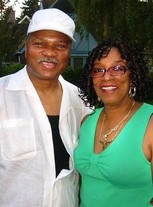 Posts: 1 View Profile |
RE: The Lies I Have Told, Allen Johnson Posted Wednesday, September 11, 2013 08:21 PM
Thank you, Allen, for sharing your essay "The Lies I have Told". I thought it was beautiful! It was thought provoking and made me recall some of my "lies of omission, lies of commission, and lies of self-delusion". I grew up without a father; my mother moved us (she, my brother and I) to Oakland, CA where she knew no one to escape his abuse (she was brave). I think I loved my father because he gave me life, but when he passed I didn’t share a tear (I've never said this to another living soul). I told him I loved him, but that may have been one of my "lies of omission". I don't think he really loved us, but it didn't matter, because I had a wonderful mother (like you) who was dedicated to her children and always sacrificed for us showing love beyond measure. She was an RN. I truly commended her for her intelligence, and her determination to be a nurse. After returning to Pasco from Oakland, she was an LPN at Our Lady of Lourdes Hospital, and suffered immense discrimination. She later became one of a few Black RNs in Seattle, and continued to be treated as someone less than. But she never gave up, continued to fight for her rights, continued to love and support all five of her living generations until her battle was was over in 2006 (she is in Pasco City View Cemetery with my brother and two children). Oh my, I'm supposed to be speaking about your lies and not mine. :o). |
||||
|
|||||
|
Karen Thonney Sippert
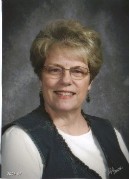 Posts: 1 View Profile |
The Lies I Have Told, Allen Johnson Posted Saturday, October 12, 2013 07:51 PM Dear Allen,
I read with great interest your article entitled The Lies I Have Told. How I wish I had known you when we were in school together. After you called me asking for my e-mail address, I, of course, looked you up in our yearbook. When I saw your face I certainly remembered who you were. I remember that you seemed like a very nice person and that you were often in the company of other nice people.
As I’ve read your background, I realize that our lives were somewhat paralleled. My father was an alcoholic and completely unreliable. I grew up protecting the lie (alcoholism) that was in our home. That “lie” kept me from developing social ties at school. I really thought our “life” was unique and if my family life was known I would be rejected so I lived a self-imposed life in the background. Another commonality in our lives was our mothers: my mother was as dependable and loving as any child could want. She was also a devoted Christian who taught me the Scriptures. As I grew up, the promises they held were what I hung onto. Mom had tuberculosis when I was young so, due to fragile health, she felt unable to earn a living to support us. Thus she and I remained with Dad and his bad behavior.
Allen, I, too, believe that pain and disappointment give us a big dose of realism. I grew up on “reality,” and it had a tremendous effect on me. I, too, am a realist, even to the point that I have no imagination, I only understand what can be plainly seen. But, in addition to that, I somehow (by God’s grace) was given faith in the Lord Jesus Christ. My faith is very real. It is not just some ethereal fantasy. To me, the Scriptures have been and continue to be fulfilled all of the time.
I have read and re-read your post. I believe what you have said. Your life has been filled with many wonderful adventures that prompt most of us with yearning. Your ability to address hundreds, thousands or more through a keynote speech is envious. The painting, photographing, traveling, and fluent French speaking must be very fulfilling. But I am most attracted by your penchant for entering gently into the sacred world of others. What a gift! I covet that!
Now, however, we come to the fact that we are in the ‘winter of our lives.’ That means that no matter how good we have been, we will no longer be improving physically and for many of us our thought processes will deteriorate as well. Then what? We are coming to the end of life as we know it. And what after death? It is wonderful to have lived such a satisfying life but then what?
Allen, in your post there is a tone that sounds wistful to me. I know you are circumspect regarding doctrine. That’s not unusual. In fact, it is very prudent to question doctrine. It is man who puts his ideas into a particular ‘religion’ and expounds them as the gospel truth. I’m sure you were taught a lot of “do’s and don’ts" in the church you attended as a child. Those are man-made laws and have served to cause many to fall away from all scriptural teaching. I grew up in a group who eventually developed very cult-like tendencies. When my husband and I left, we knew we would be shunned by the group and many in it were my family members. But rather than overcome us with fear, that served to strengthen us in the belief that we wanted to follow Scripture alone. I don’t feel that I am an advocate of the religious, the mystical, or the celestial. I do believe the Scriptures and consider myself a follower of Jesus Christ.
I do respect your right to believe what you choose. I care about you because we shared a time, maybe even a class or two, in the past that had a great impact on our lives. As well, in the present, you seem like a very interesting delightful person. Its just that in your letter you were so cavalier that you were okay; feeling vindicated and unashamed. Is there a spark of doubt that would like to be convinced that you aren’t standing alone; that the very God of the universe has a personal interest in, even love for you.
I think you have probably thought about the above questions, but I ask you to consider them one more time. Would you prayerfully ask God to reveal himself to you in a way that assures you of His reality?
Thank you, Allen, for all the work you have done to gather our class for our 50th Reunion. I appreciate you and the others who are working on it.
Sincerely, Karen (Thonney) Sippert hsippert3643@charter.net
? |
||||
|
|||||
Based on CFMBB, an Open Source Coldfusion project.
Powered by Class Creator